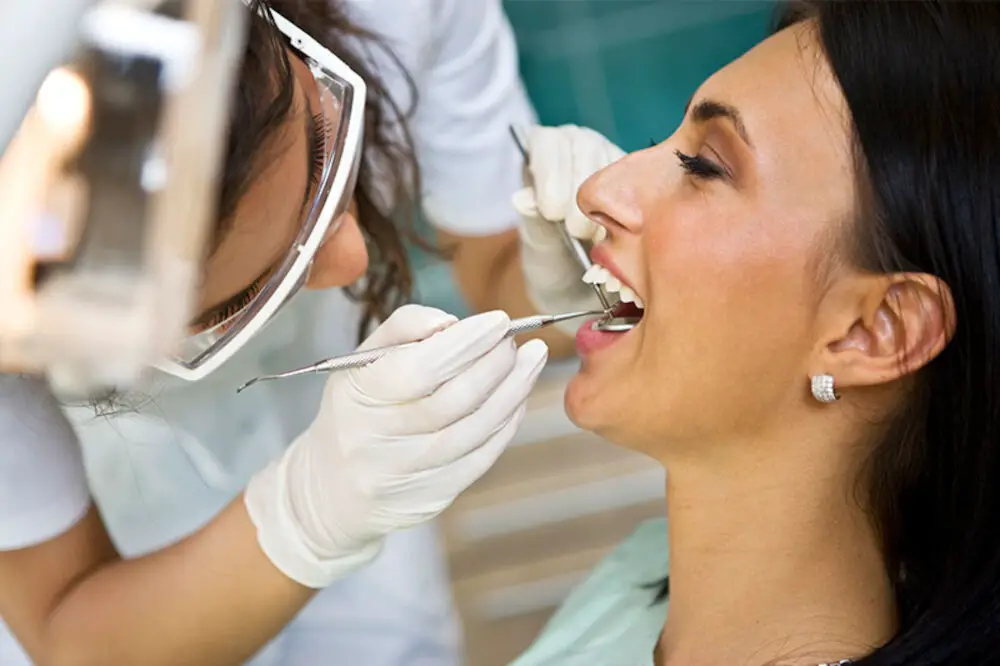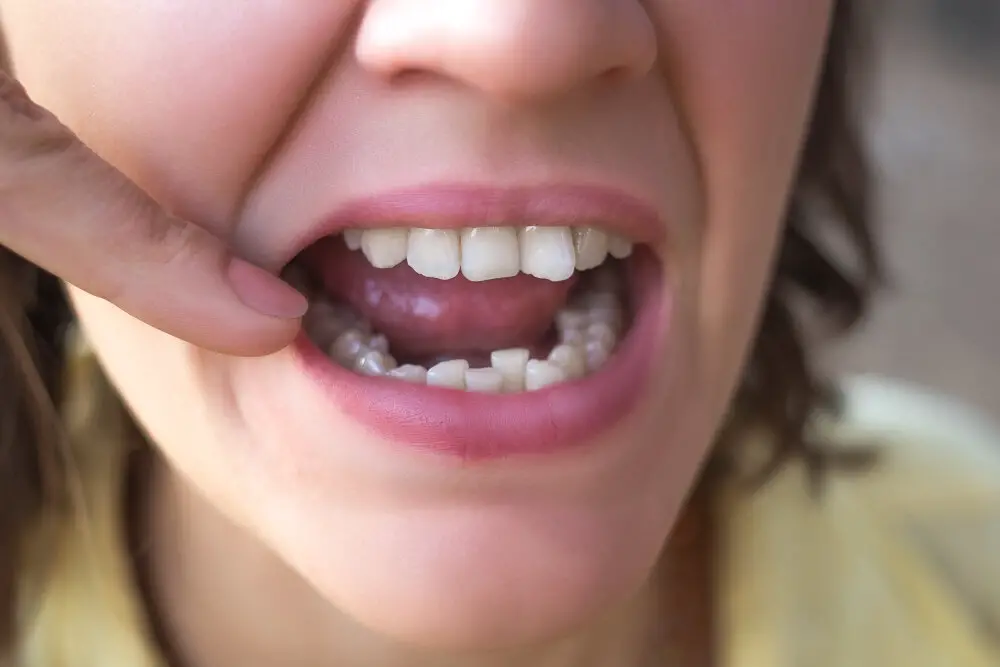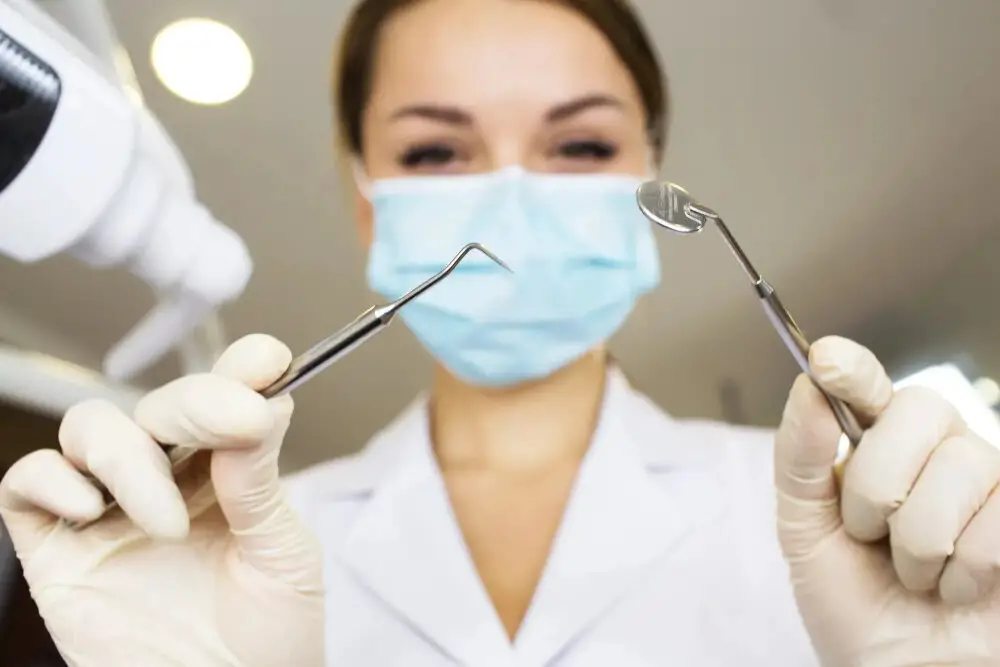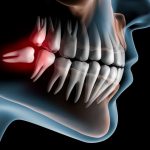Meth Mouth: The Devastating Effects of Methamphetamine on Your Teeth

Methamphetamine, also known as crystal meth or simply meth, is a highly addictive and destructive drug that is notorious for its devastating impact on the human body. Among the many harmful effects of meth abuse, one of the most notable is the damage it can cause to a person’s teeth and oral health. Known as \meth mouth,\ the dental problems associated with meth use can be severe, painful, and irreversible. Methamphetamine is a stimulant drug that can be smoked, snorted, injected, or taken orally. It works by increasing the levels of dopamine, a neurotransmitter that is responsible for feelings of pleasure and reward, in the brain. However, meth also causes a range of negative side effects, including loss of appetite, insomnia, anxiety, paranoia, and aggression. These effects can lead to a range of health problems, including dental issues that can cause significant pain, discomfort, and disfigurement. The effects of meth on teeth are so severe that some experts compare the damage to that caused by long-term heavy tobacco use.
Methamphetamine is a highly addictive and potent stimulant drug that affects the central nervous system, causing an intense rush of energy, increased alertness, and euphoria. Methamphetamine can be snorted, smoked, injected, or taken orally, and its effects can last for hours or even days. Methamphetamine works by increasing the levels of dopamine, a neurotransmitter that regulates pleasure and reward in the brain, resulting in the intense feelings of euphoria and energy. However, methamphetamine can have devastating effects on the body, including damage to the teeth, gums, and other parts of the mouth. Chronic use of methamphetamine can lead to a condition known as \meth mouth,\ in which the teeth become severely decayed, discolored, and damaged, leading to tooth loss and other oral health problems.
Meth Mouth is a term used to describe the severe dental problems that result from methamphetamine abuse. This drug is highly addictive and causes a range of physical and psychological symptoms, including intense tooth decay, gum disease, and tooth loss. Methamphetamine use can also lead to a dry mouth, which exacerbates the damage caused by the drug. The effects of Meth Mouth are devastating and can be irreversible, leaving individuals with significant dental issues that impact their overall health and well-being. It is crucial for those struggling with meth addiction to seek professional help before the damage to their teeth becomes irreparable.
What is Meth Mouth?

Meth mouth is a term used to describe the severe dental problems that are commonly associated with the use of methamphetamine. The drug is highly addictive and can cause a range of physical and mental health problems, including tooth decay, gum disease, and tooth loss. Methamphetamine is a powerful stimulant that can cause users to grind their teeth, clench their jaws, and experience dry mouth, all of which can contribute to the development of meth mouth. In addition to these factors, methamphetamine use can also lead to poor oral hygiene, a diet high in sugar and acidic foods, and a weakened immune system, all of which can exacerbate dental problems. The effects of meth mouth can be devastating, often resulting in significant pain, discomfort, and embarrassment for those affected. Many people with meth mouth experience tooth decay and gum disease that is so severe that it can lead to tooth loss, facial disfigurement, and difficulty eating and speaking. In addition to these physical problems, meth mouth can also take a toll on a person’s mental and emotional health, causing feelings of shame, isolation, and anxiety. For these reasons, it is important to seek help if you or someone you know is struggling with meth addiction, both for the sake of your teeth and your overall well-being.
Meth Mouth is a term used to describe the severe dental problems that often occur in individuals who abuse methamphetamine. This condition is caused by the drug’s highly acidic nature, which erodes the enamel on the teeth, leading to decay and eventual tooth loss. Additionally, methamphetamine use often leads to a decrease in saliva production, which can exacerbate dental problems. Meth Mouth can be identified by a number of symptoms, including yellowing or blackening of the teeth, gum disease, and tooth decay. Unfortunately, many people who suffer from this condition are unable to afford the costly dental procedures required to repair the damage, leading to a lifetime of dental problems. Meth Mouth is just one of the many devastating effects of methamphetamine on the body, and it serves as a powerful reminder of the dangers of drug abuse.
Methamphetamine, commonly known as meth, is a highly addictive drug that can have devastating effects on oral health. Meth use causes the mouth to produce less saliva, which is essential to neutralize acids and protect teeth and gums from damage. As a result, the acidic environment created by meth use can lead to rapid tooth decay and gum disease. Meth also causes blood vessels to constrict, reducing blood flow to the gums and increasing the risk of infection. In addition, meth users often experience dry mouth, teeth grinding, and poor nutrition, all of which contribute to the deterioration of oral health. The science behind how meth damages teeth and gums is complex and multifaceted, but the bottom line is that the drug can cause irreversible damage that is both painful and expensive to treat.
Signs and Symptoms of Meth Mouth

Methamphetamine, commonly known as meth, is a highly addictive drug that wreaks havoc on a person’s oral health. Meth mouth is a term used to describe the devastating effects of methamphetamine on a person’s teeth and gums. Signs and symptoms of meth mouth include severe tooth decay, gum disease, cracked and broken teeth, and tooth loss. Methamphetamine use also causes dry mouth, which contributes to the development of cavities. Additionally, methamphetamine use can cause a person to grind their teeth, leading to further damage. Methamphetamine use often leads to poor oral hygiene, as users may neglect or forget to brush their teeth due to the drug’s effects on their brain. Methamphetamine use also causes a decrease in saliva production, which is essential for washing away food particles and bacteria in the mouth. The combination of poor oral hygiene and decreased saliva production creates a breeding ground for bacteria, which can cause tooth decay and gum disease. In severe cases, methamphetamine use can cause a person’s teeth to rot from the inside out, leading to painful tooth abscesses and the need for extensive dental work. The devastating effects of methamphetamine on a person’s oral health should serve as a warning to anyone considering using this highly addictive drug.
Methamphetamine, a highly addictive drug, not only affects the brain but also causes severe damage to the teeth, gums, and mouth. Meth mouth is a term used to describe the deteriorating oral health of methamphetamine addicts. The physical signs of meth mouth are unmistakable and include tooth decay, gum disease, and cracked and missing teeth. Meth mouth also causes dry mouth, which leads to a decrease in saliva production and an increase in bacteria growth. This combination of factors results in a rapid and irreversible decay of the teeth and gums, leaving the mouth in a state of extreme pain and discomfort. Meth mouth is a devastating and heartbreaking side effect of drug addiction, and it serves as a warning of the destructive power of substance abuse.
Methamphetamine, commonly known as meth, is a highly addictive drug that can cause devastating effects on teeth, which is known as Meth Mouth. The symptoms of Meth Mouth include severe tooth decay, gum disease, and tooth loss. Methamphetamine abuse can cause dry mouth, which reduces saliva production, leading to a buildup of harmful bacteria in the mouth. Additionally, meth users often grind their teeth, causing enamel erosion, and make poor dietary choices, such as consuming sugary, acidic, and carbonated beverages, which further exacerbate the damage. Meth Mouth is a serious condition that can result in the loss of teeth, difficulty eating, and even life-threatening infections.
Prevention and Treatment of Meth Mouth

Meth mouth is a condition caused by the regular use of methamphetamine. This drug is highly addictive and can cause severe damage to teeth and gums. The best way to prevent meth mouth is to avoid the drug altogether. If you or someone you know is struggling with addiction, seek professional help immediately. Early intervention can prevent significant damage to teeth and gums. If meth mouth has already set in, seeking dental treatment is essential. A professional dentist can treat the decay and gum disease caused by methamphetamine use. Treatment may involve fillings, extractions, or even dentures. It is important to note that dental treatment alone will not solve the underlying addiction problem. Treating meth mouth requires a multi-disciplinary approach that involves addiction counseling, therapy, and support from family and friends. With the right treatment plan, it is possible to overcome meth addiction and restore dental health.
Meth mouth is a severe dental condition that can cause a lot of damage to your teeth, gums, and overall oral hygiene. However, there are some preventive measures that you can take to avoid this condition. Firstly, you need to avoid the use of methamphetamine altogether. Secondly, maintaining good oral hygiene by brushing and flossing your teeth regularly can help prevent meth mouth. In addition to these measures, you can also modify your diet by reducing the intake of sugary foods and drinks that can contribute to tooth decay. Lastly, regular dental checkups can help detect and prevent any dental problems before they escalate into a severe condition like meth mouth. By following these preventive measures, you can avoid the devastating effects of methamphetamine on your teeth and maintain good oral hygiene.
Meth mouth is a serious dental issue that can result in extreme tooth decay, gum disease, and tooth loss. Treatment options for those with meth mouth typically involve a combination of dental procedures, behavioral therapy, and medication-assisted treatment. Dental procedures may include extractions, fillings, and dental implants to replace missing teeth. Behavioral therapy can be helpful in addressing the underlying addiction, while medication-assisted treatment can help to manage withdrawal symptoms and cravings. It is important to seek treatment as soon as possible to prevent further damage to the teeth and gums.
The Impact of Meth Mouth on Overall Health

The use of methamphetamine has a devastating effect on dental health, which is often referred to as \meth mouth.\ The highly addictive drug causes a decrease in saliva production, leading to dry mouth, and an increase in acid production, which weakens tooth enamel. Methamphetamine users also tend to neglect their oral hygiene, leading to severe decay, gum disease, and tooth loss. Meth mouth is characterized by broken, discolored, and rotting teeth that cause extreme pain and discomfort, making it difficult for users to eat, speak, and smile. The impact of meth mouth goes beyond dental health and can affect overall health. Methamphetamine use is associated with a host of physical and mental health problems, including cardiovascular disease, stroke, liver and kidney damage, anxiety, depression, and psychosis. Methamphetamine use also weakens the immune system, making users more susceptible to infections and illnesses. Therefore, it is crucial for individuals struggling with meth addiction to seek help and undergo dental treatment to prevent further damage to their teeth and improve their overall health and well-being.
Meth Mouth, a term used to describe the severe dental problems caused by the use of methamphetamine, is not only a dental issue but also a significant health concern. The use of methamphetamine, commonly known as meth, can cause a range of health problems, including heart disease, stroke, and respiratory problems. Meth use can also lead to poor nutrition, which can cause vitamin deficiencies and weaken the immune system. These health issues, combined with the destructive effects of meth on teeth and gums, can cause long-term damage to a person’s overall health and well-being. It’s crucial for individuals struggling with meth addiction to seek professional help to address both their dental and overall health concerns.
Meth Mouth is not only a dental issue, but it also has a profound impact on mental health and quality of life. The physical appearance of Meth Mouth can cause individuals to feel embarrassed, ashamed, and socially isolated. This can result in anxiety, depression, and other mental health issues. Meth use also affects the brain’s pleasure and reward centers, leading to a vicious cycle of addiction and self-destructive behavior. As a result, those suffering from Meth Mouth often experience a decline in their overall quality of life, including relationships, employment, and self-esteem. Seeking treatment for Meth Mouth is crucial not only for dental health but also for mental and emotional well-being.
Meth mouth is a term used to describe the devastating effects of methamphetamine on an individual’s teeth. This drug is highly addictive and commonly abused, leading to a range of health problems, including tooth decay, gum disease, and tooth loss. Methamphetamine use can cause severe dry mouth, which can contribute to decay and enamel erosion. Additionally, the drug can cause users to grind their teeth and clench their jaws, leading to cracked teeth and other dental problems. The appearance of meth mouth is often characterized by broken, discolored, and rotting teeth, as well as sore and bleeding gums. The effects of meth mouth can be permanent and irreversible, leaving individuals with a lifetime of dental problems and health complications. Preventing methamphetamine abuse is crucial to avoiding these devastating effects on oral health and overall well-being.
If you or someone you know is struggling with methamphetamine addiction, it is crucial to seek professional help and treatment. The effects of meth on your teeth, known as \meth mouth,\ can be devastating and irreversible. However, the damage caused by meth addiction extends far beyond dental health. Meth use can lead to physical and mental health problems, financial struggles, legal troubles, and strained relationships. Seeking treatment is not a sign of weakness, but a courageous step towards a healthier and happier life. There are various resources available, including support groups, counseling, and medication-assisted treatment. Don’t let methamphetamine addiction destroy your life – reach out for help today.
Conclusion

In conclusion, Meth Mouth is a harrowing consequence of Methamphetamine abuse that can cause irreversible damage to your teeth, gums, and overall oral health. The acidic nature of the drug, combined with poor dental hygiene and a lack of nutrition, leads to a rapid decline in the appearance and function of your teeth. The effects of Meth Mouth are devastating, and often require extensive and expensive dental procedures to repair the damage. It is crucial to prioritize your oral health and seek help for Methamphetamine addiction before it’s too late. Remember, prevention is always better than cure, and taking care of your teeth and gums is an essential part of leading a healthy and happy life.







